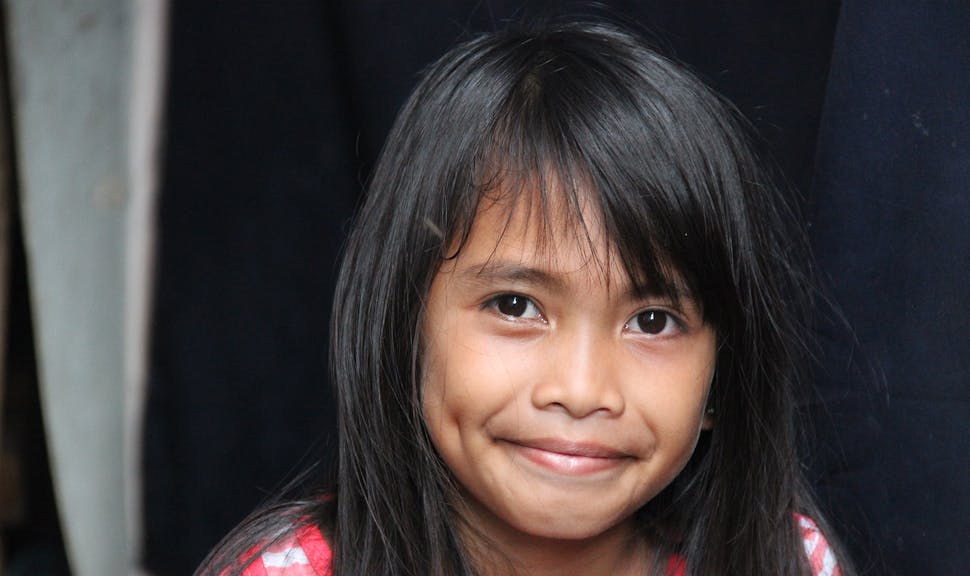
August 22, 2016
Changing Health in Rural Rajasthan
6 minutes
On a long stretch of dirt road in central Rajasthan, India - about 600km southwest of New Delhi - Sita*, nine-months pregnant and about to go into labor, is being driven hastily from her village to the Community Hospital in Khimsar.
She’ll be visited by a doctor who’ll immediately perform an ultrasound that will show that her baby’s umbilical chord is wrapped around his neck. She’ll be rushed to a waiting ambulance and driven 80 km to a larger hospital with the necessary doctors and equipment for her condition.
Minutes later, her baby boy will be delivered in good health, and Sita will make it through the entire ordeal without incident.
Had this happened a few weeks ago, both mother and child almost certainly would not have survived.
That’s because the ultrasound machine used for the diagnosis, the training required to operate it, and the ambulance that sped Sita away to the larger hospital, were all part of a recent AXA SOLIMED donation to the Community Hospital of Khimsar.
The good, the bad and the healthy.
In barely five years of activity, SOLIMED (an AXA medical solidarity
programme) has launched major medical projects across Africa for communities in Senegal, the Ivory Coast and Gabon (see sidebar for details).
Now it’s Asia’s turn, with India the first Asian country selected for the ambitious project. With a population of 1.25 billion (as of July 2015), it’s the second-most inhabited country in the world, and one of the world’s fastest growing economies. The advancement of healthcare in India, however, is a story of many contrasts.
AXA SOLIMED
In 2011, AXA Assistance, part of AXA Group, set up a pioneering programme to support critically under-supplied hospitals in other countries. The concept consists mainly in recovering unused or discarded equipment from hospitals, restoring it, then shipping it abroad, overseeing its installation and helping train local healthcare professionals to use it effectively, as well as providing new equipment. Projects so far have been conducted in Senegal, Ivory Coast, Gabon and now, India with the support of AXA UK employees.
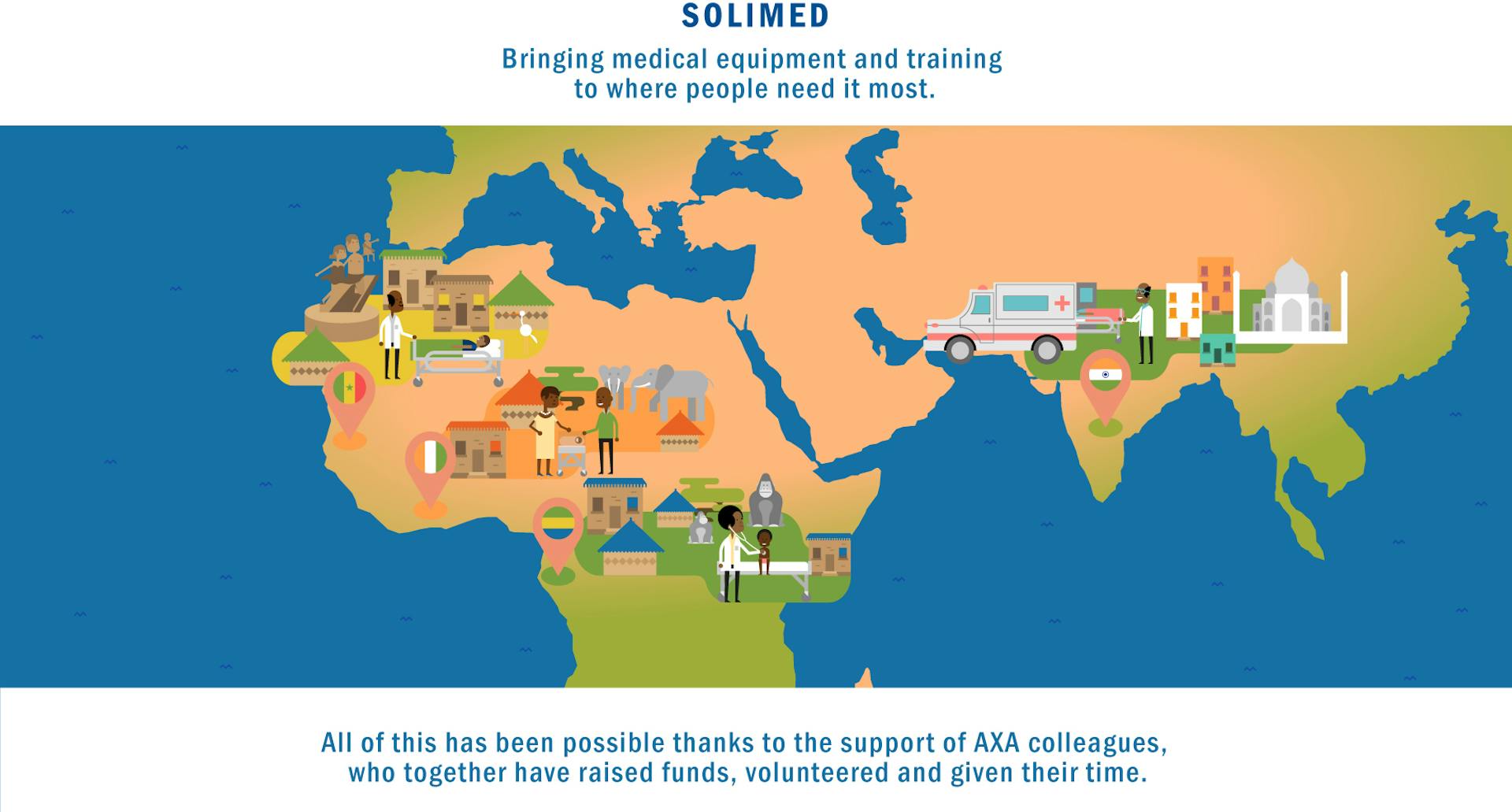
AXA SOLIMED brings unused medical equipment and training in India, but also Senegal, Ivory Coast and Gabon.
Clinical excellence and low costs are turning the country into a global destination for all kinds of medical treatment. However, it accounts for 21% of the world's global burden of disease, with the greatest number of maternal, newborn and child deaths in the world. This translates into GDP (Gross Domestic Product) losses of more than 6% annually due to premature deaths and preventable illnesses.
Additionally, access to quality services is difficult and, despite recent increases in the Indian Government's health budget, public investment remains low, with primary care, prevention and safe maternity care ineffective and inaccessible for those who need it most, especially those located in rural areas and small towns.
Why Khimsar?
Dr. Pradeep Bery is a consultant and Medical Director with AXA Assistance India. His previous experiences with the organization include helping people and communities in the aftermaths of the 2011 tsunami in Japan and the 2015 earthquake in Nepal. Involved in the Khimsar project from the start, he was entrusted with checking out three different target locations in India for AXA SOLIMED.
Logistically, and need-wise, we thought the location in Khimsar would be the best to do this project in… it would be easy for the equipment to be sent here, it would be easy for people to travel here, and we were looking at helping a community with women and children who are not getting adequate treatment.
, he recounts. When we went to Khimsar, we found there was so much we take for granted, which was not there. This was the right place, and the right time, to do something, to provide a better quality of medical care… to make a big difference to the local area.
1.25
Billion Inhabitants
India's population in 2015
India is the second-most inhabited country in the world
21%
of the world's global burden of disease
India accounts for
with the greatest number of maternal, newborn and child deaths in the world
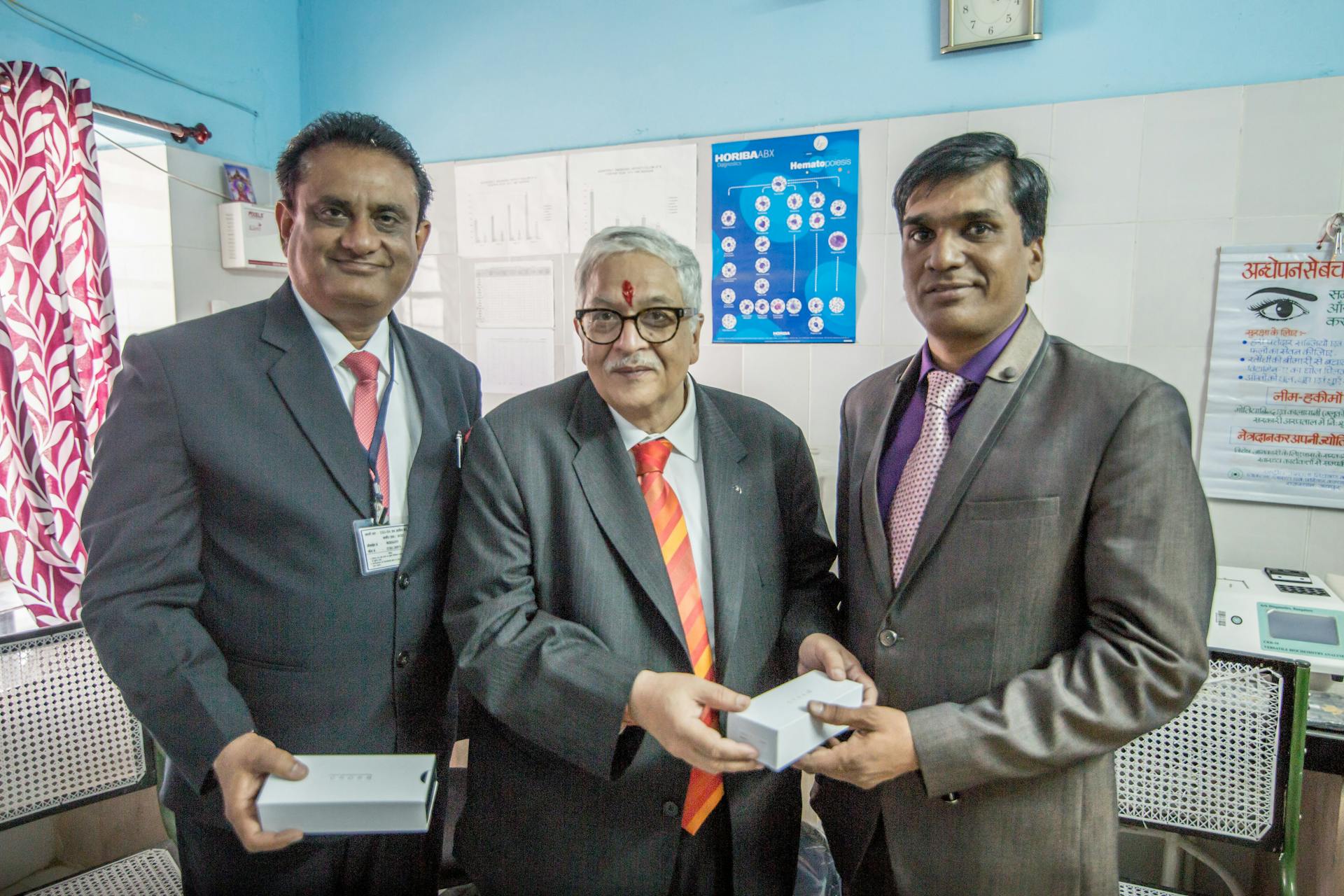
3 doctors in the Community Hospital of Khimsar. From left to right: Dr. J. K. Saini, Dr. Pradeep Bery and Dr. Ramjit Tak
A doctor. A day.
7:30am
The sun rises behind the roof of the white-bricked clinic (recently upgraded
to Community Health Center thanks to the local Maharaja, who is also the Minister of Industry) that serves 50 villages in an area with a total of 130,000-150,000 inhabitants (there are no private hospitals in the area and the nearest tertiary care hospital is a two-hour drive away, in Jodhpur).
8:25am
Over a dozen people, including mothers, elders and children, have lined up in front of the clinic to see the doctor. Dr. Saini arrives and ushers the first of them in. The clinic is open 24/7, with at least one doctor on call at all times (they’re provided with accommodations nearby), though this is typically when they start their day.
8:30am
The patients shuffle forward, the pastel-colored hallways providing a pleasant respite from the hot sun. The white-tiled patient rooms have a light smell of medical solution and alcohol-based cleaning fluid.
The doctor sees the first 20-30 outpatients and a few inpatients requiring care. In total, he (there aren’t any female doctors currently, but plans are in the works to train a female midwife) will see 10 to 20 inpatients a day, and between 50 and 60 outpatients, for up to 2000 a month (plus about 250 deliveries in the same period).
12:00pm
Unless there are urgent procedures, Dr. Saini will enjoy a homemade lunch, prepared lovingly by his spouse, before returning to his duties at the hospital.
12:45pm
The doctor sees more outpatients, some who have just arrived, and then sees the remaining inpatients, including women who need to have childbirth,
Dr Bery clarifies, …and common illnesses like gastroenteritis, tuberculosis, pneumonia, fevers and dengue.
6:00pm
Dr. Saini’s day is over. However, it’s his turn to be on call until the next morning. He’ll deal with impromptu health issues like childbirth complications and roadside accidents, which occur with alarming frequency on the local highways.
Enter AXA SOLIMED.
With a wide range of needs, the Community Hospital of Khimsar requires a wide range of equipment. And AXA SOLIMED provided exactly that, with the support of AXA employees around the world, especially employees from AXA UK and AXA Assistance entities.
Through fundraising efforts - from collaborative events such as the Festival of Lights
and AXA Corporate Responsibility Week to cycling challenges from the UK to Paris and the AXA Assistance UK and AXA Travel Insurance Executive Teams undertaking sun salutations, ice bucket and triathlon challenges - a total of 62,000 Euro went directly to providing medical equipment and support for the clinic.
AXA Assistance India provided key resources, both in terms of time and money, with CEO Rachna Sethi responsible for coordinating the initiative for her entire team, all of which voted overwhelmingly to contribute directly to financial support for the project.
AXA Assistance's team in India has been deeply involved with the SOLIMED project, personally as well as organizationally, both on emotional and execution fronts.
, she sums up. Each of us has contributed one day's salary for this noble cause… to provide various facilities for the health center. The team is also proud to be part of the AXA Group, which is setting the standards of being a responsible corporate citizen.
She continues, My team saw this as a great initiative, they’re proud of being part of a company that contributes… and I can see that pride in their eyes whenever we talk SOLIMED.
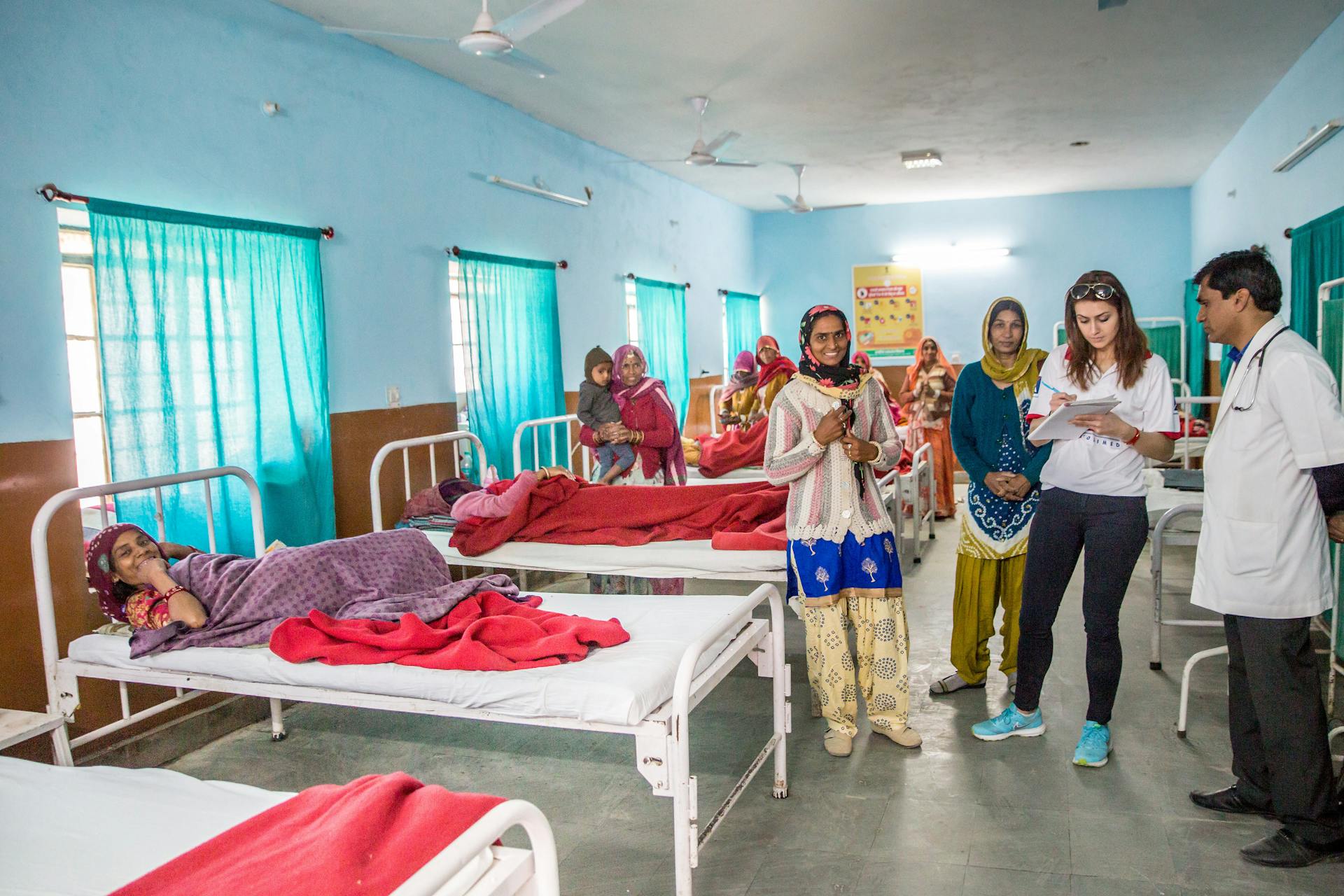
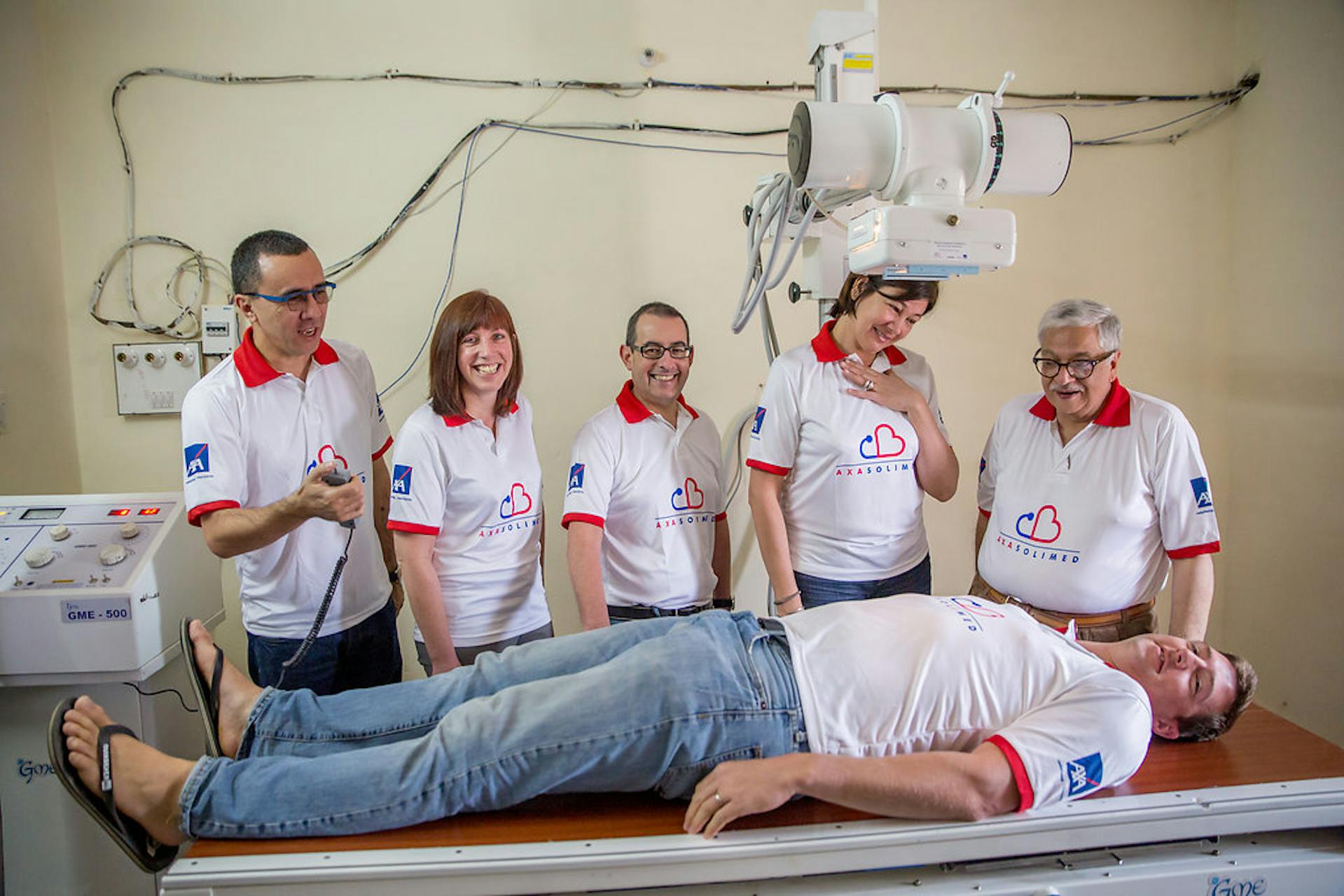
From pride to tears…
The center’s inauguration was held soon after the first round of equipment was brought to the clinic. It surpassed all expectations, as around 2,000 people attended, including the Minister of Industry, a local member of Parliament, team leaders from medical departments all over the state, doctors from other areas of India, and various members of the local Panchayat governing body.
We had people in tears.
Dr. Bery recounts, The village elder, he came on stage and started crying, he was so emotional, saying ‘nobody’s ever done this’… Everybody we met was really grateful.
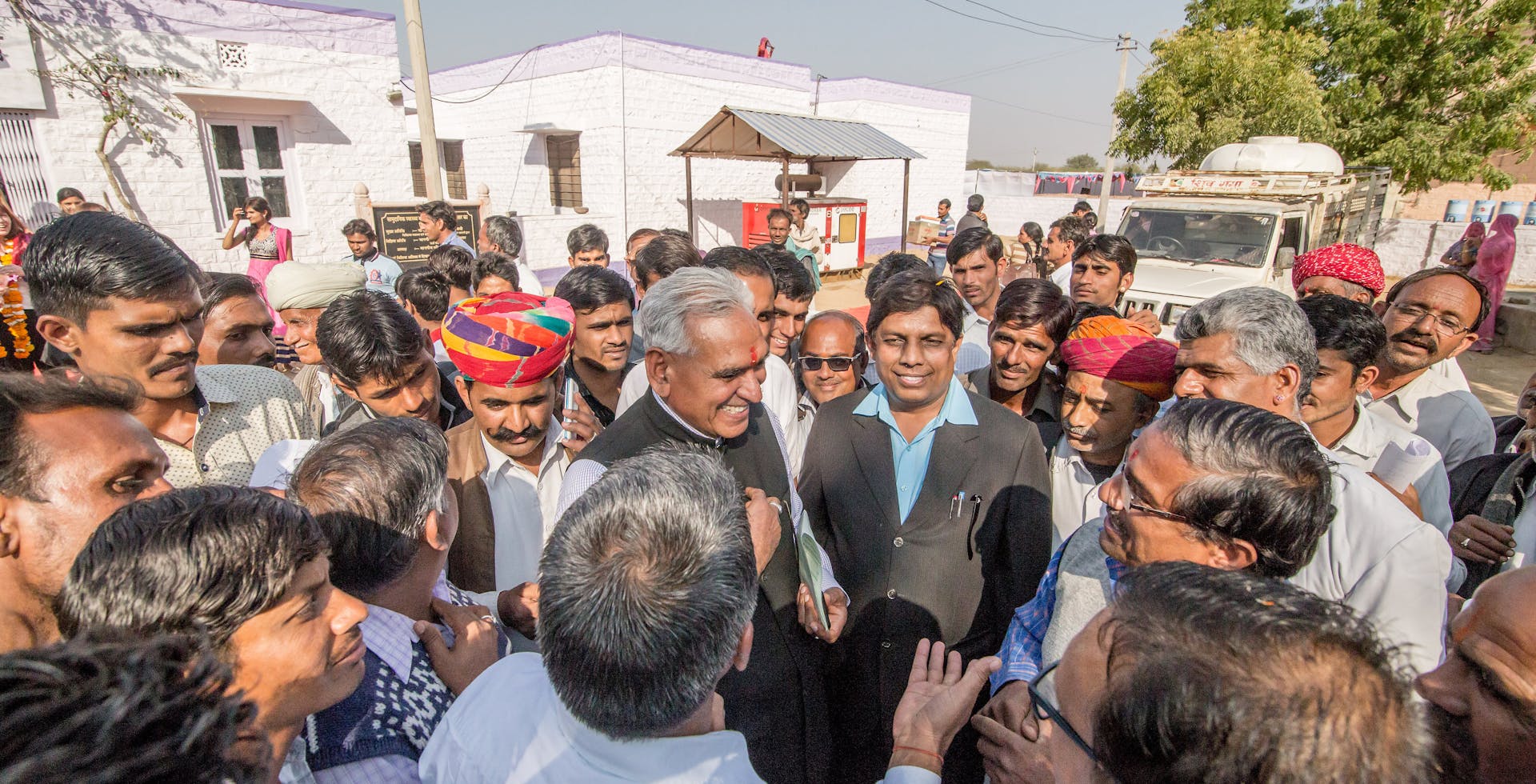
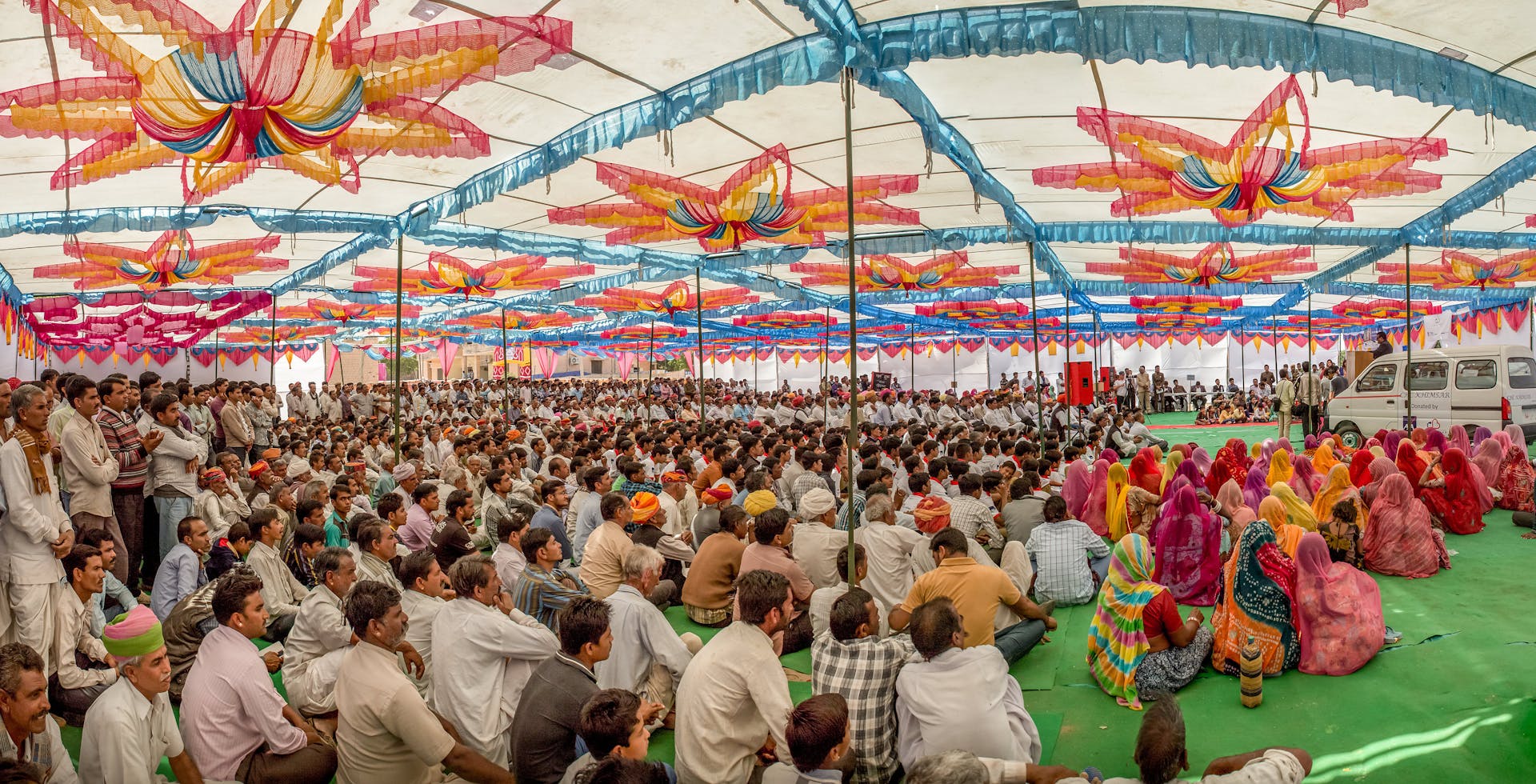
…and beyond.
The AXA SOLIMED project in Khimsar will last two more years, with more contributions and improvements to come. However, an even larger initiative is underway: the local Rajasthan government has just sanctioned approximately half a million pounds (around $700,000) towards the construction of a second building that will house a new wing of the clinic, and one that will majorly improve medical standards across the area.
With help from AXA SOLIMED, AXA UK, AXA Assistance UK, AXA Travel Insurance and AXA Assistance India, The Community Hospital of Khimsar received the following:
1 500mA X-ray machine
1 12-channel ECG machine (electrocardiogram)
1 fully-fitted Maruti Suzuki Eeco ambulance
1 birthing bed
1 blood auto analyzer
1 neo natal incubator
4 cardiac monitors for adults, babies and newborns
10 hospital beds with mattresses
2 stretchers
2 air conditioners
1 water filtration plant



